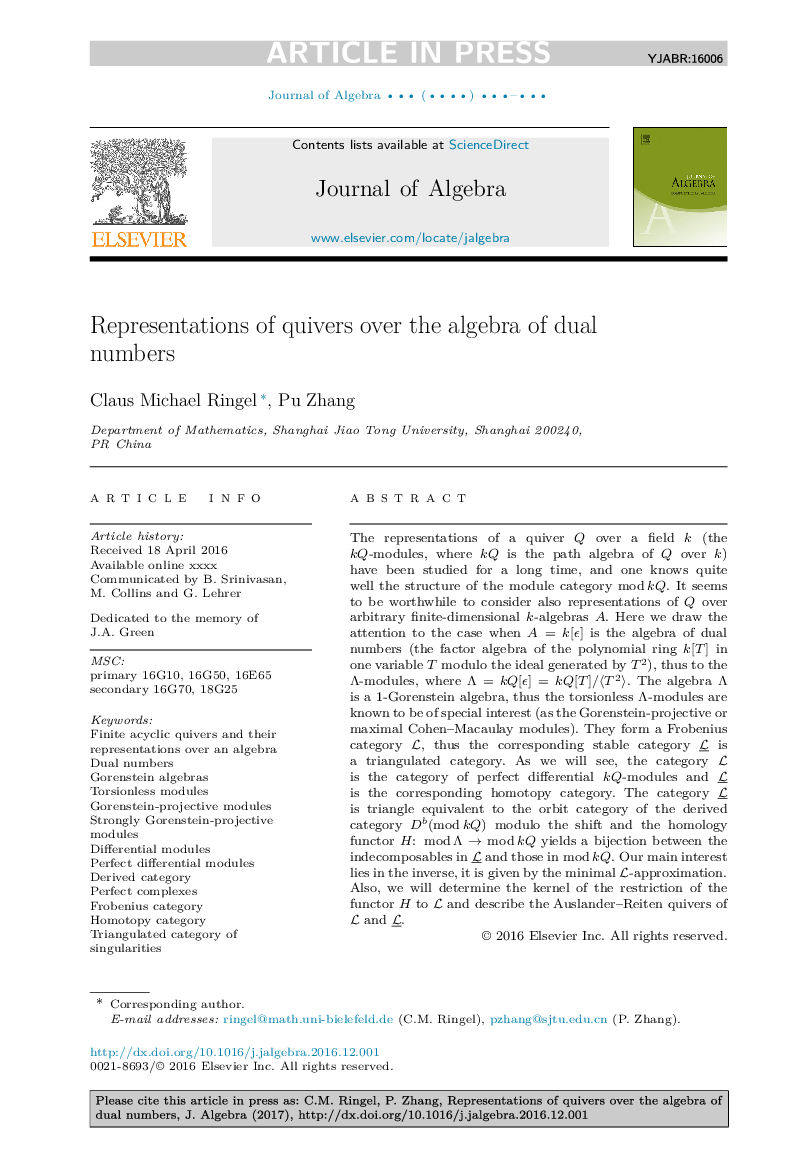| Article ID | Journal | Published Year | Pages | File Type |
|---|---|---|---|---|
| 5772065 | Journal of Algebra | 2017 | 34 Pages |
Abstract
The representations of a quiver Q over a field k (the kQ-modules, where kQ is the path algebra of Q over k) have been studied for a long time, and one knows quite well the structure of the module category modkQ. It seems to be worthwhile to consider also representations of Q over arbitrary finite-dimensional k-algebras A. Here we draw the attention to the case when A=k[ϵ] is the algebra of dual numbers (the factor algebra of the polynomial ring k[T] in one variable T modulo the ideal generated by T2), thus to the Î-modules, where Î=kQ[ϵ]=kQ[T]/ãT2ã. The algebra Î is a 1-Gorenstein algebra, thus the torsionless Î-modules are known to be of special interest (as the Gorenstein-projective or maximal Cohen-Macaulay modules). They form a Frobenius category L, thus the corresponding stable category L_ is a triangulated category. As we will see, the category L is the category of perfect differential kQ-modules and L_ is the corresponding homotopy category. The category L_ is triangle equivalent to the orbit category of the derived category Db(modkQ) modulo the shift and the homology functor H:modÎâmodkQ yields a bijection between the indecomposables in L_ and those in modkQ. Our main interest lies in the inverse, it is given by the minimal L-approximation. Also, we will determine the kernel of the restriction of the functor H to L and describe the Auslander-Reiten quivers of L and L_.
Related Topics
Physical Sciences and Engineering
Mathematics
Algebra and Number Theory
Authors
Claus Michael Ringel, Pu Zhang,
